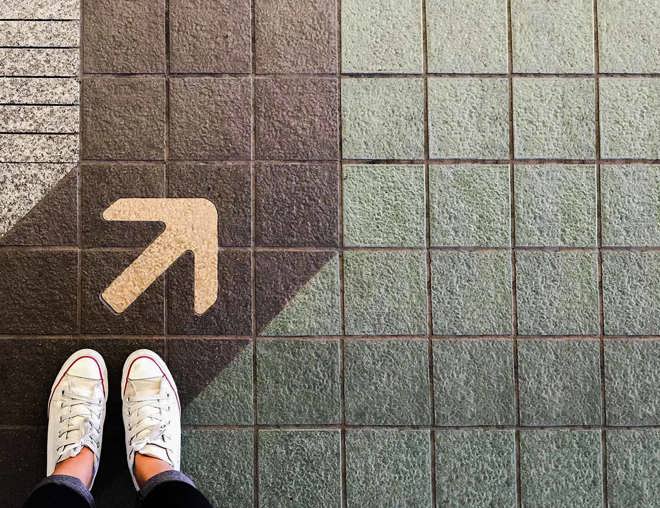
Recovering from an addiction can be a lifelong journey. You’ll need patience, resilience, persistence, planning, and a lot of support along the way. And you’ll need to avoid the triggers that could lead to relapse.
Stress in the workplace can be a major trigger—especially since we spend 60% of our waking hours at work. Which means you’ll need to manage workplace stress. And you’ll need to find a job that’s right for you.
Some types of jobs, some types of work arrangements, and some industries will be a better fit than others.
Find a job that’s right for you
Everyone’s recovery journey is different. Everyone’s workplace needs are different too.

How to Choose a Career That Fits You
What do you want to be when you grow up? Now that you’re an adult or almost one, how do you actually get the answer to that question? This guide will show you how.
For example, some people thrive on predictable, clearly assigned tasks performed on a regular 9 to 5 schedule. Others may prefer more self-direction, ever-changing responsibilities, and flexible work hours. Finding the best fit increases job satisfaction and reduces stress.
Industry sectors that may be a good fit
Some experts note that community service-related work and jobs in the helping professions can be a good choice for people in recovery. Jobs in the health-care and not-for-profit sectors, for example, can provide a sense of purpose and the satisfaction of giving back. However, jobs in these sectors are also the most stressful types of work. Long hours, resource constraints, and the emotional toll of helping people in crisis can trigger relapse.
Jobs in the trades can offer the predictability and routine that some people need. Many trades-related industries also offer extensive workplace wellness support. On the other hand, the rate of alcohol use in the construction trades is the highest of any industry in Alberta. Alcohol use is also high in Alberta’s mining, oil and gas, food and beverage, transportation, materials-moving, farming, and sales industries. For people recovering from alcohol addiction, exposure to alcohol can be a trigger for relapse.
Jobs in creative sectors like photography, graphic design, and content creation are a good fit for some people. Jobs in these sectors can support recovery by fostering personal development, resilience, self-awareness, and a deeper understanding of the world.
Job characteristics that support recovery
Jobs with structured schedules, supportive workplace cultures, and low-stress responsibilities are often ideal for people in recovery. However, the relationship between job responsibility and stress is complex. The least stressful jobs often combine high responsibility with plenty of creativity, independence, and a healthy work-life balance.
The most and least stressful jobs 2024
The staffing and recruitment agency CareerCast rates the following as the most stressful jobs: health care workers, first responders, law enforcement officers, air traffic controllers, teachers, call centre staff, corporate executives, and social workers and mental health professionals. The least stressful jobs are librarians, data entry clerks, technical writers, medical records technicians, freelance or remote workers, university professors, graphic designers, and archivists.
In general, the best jobs for someone recovering from addiction have the following characteristics:
- Stability and job security–worrying about how long your job will last is stressful. So is worrying about having the skills you need for a changing job market.
- Easy logistics–if having to wake up at a particular time or transportation to work is a challenge, this creates stress.
- Structured environment–a daily routine can help you stay focused and build self-discipline. It can also help you build healthy habits such as regular exercise, adequate sleep, and good nutrition. All these things support wellness and recovery.
- Predictable work schedule–regular hours help you maintain a recovery routine. Shift work, on the other hand, can make it harder for you to stay on track.
- Flexibility–you might need time to attend support meetings or see a medical professional as part of your recovery. Flexible work hours can help you do that.
- Supportive, stigma-free workplace culture–one that offers help like employee assistance programs and mental health resources can foster a sense of purpose and belonging.
- Opportunities for growth and development–this builds the motivation, confidence, self-worth, and sense of purpose you need to sustain recovery. It also prepares you for future jobs.
- Manageable workload–high volume work, hectic schedules, tight deadlines, and high-pressure responsibilities can be stressful.
Work arrangements
For some people, remote work can be challenging and isolating. For others, it offers benefits that can help support recovery.
As with everything, there is no one-size-fits-all solution. Use your judgment to decide if working remotely is right for you.
The pros and cons of remote work
On the plus side, remote work:
- Saves time
- Reduces the stress of commuting
- Saves money on bus fare or gas
- Gives you flexibility for scheduling appointments
- Reduces workplace-related interruptions and distractions
- Gives you control over your environment
- Keeps you away from office politics and interpersonal conflicts
Remote work can have downsides too:
- It can be lonely and isolating, which can affect your mental health.
- It can blur the boundaries between work and home, which can create stress. You can end up working more and feeling pressured to be available at all hours.
- Kids and pets can be distracting.
- The lack of structure, supervision, and routine can make it hard to be productive and sustain your recovery.
- Constant digital communication can cause “technostress” and fatigue that lead to anxiety and burnout.
Tips for effective remote work
- Practise good time management.
- Create a structured routine and schedule regular breaks away from screens.
- Have a designated workspace.
- Stay connected to colleagues and friends—in person as well as virtually.
- Keep up your professional development.
- Get help if coping is a challenge.
Read this article on how a professional woman recovering from addiction finds work-life balance by working from home.
Check out these alis resources on finding remote work and making it work for you. And get tips on how to find jobs that will let you work remotely.
Find supportive employers and recovery-friendly workplaces
Workplaces can be a source of stress, but there’s a growing recognition that employee wellness means corporate success. More and more employers are making the effort to create recovery-friendly workplaces that minimize job stress and support people recovering from addiction.
The benefits of a recovery-friendly workplace flow both ways. Employees have the support they need to get well, stay well, and rebuild their careers. Employers benefit from lower absenteeism, less staff turnover, improved workplace safety, higher productivity, and better job performance
A Growing Movement
In January 2025 the Alberta-based Canadian Centre of Recovery Excellence released guidelines to help employers create recovery-friendly workplaces to support people recovering from addiction. Many employers and industry associations are already doing good work in this area:
- The Christian Labour Association of Canada offers an employee and family assistance program and substance abuse aid.
- ICBA Alberta (the Alberta branch of the Independent Contractors and Business Association) offers a Workplace Wellness Program that promotes employee well-being and healthy workplace culture in the construction industry.
- Building Trades of Alberta offers a Building Resiliency program that provides mental health, addiction, and recovery support in the workplace.
- Government of Canada departments and agencies offer an employee assistance program that provides free counselling for personal and work-related issues.
- Alberta government employees can access a confidential employee and family assistance program that includes addiction support and relapse prevention.
What does a recovery-friendly workplace look like?
In a recovery-friendly workplace, addiction is understood as a treatable disability. Hiring practices don’t discriminate against people with addiction issues and other disabilities. Addiction and mental illness are destigmatized, and people in recovery are welcomed and supported.
Employees in a recovery-friendly workplace enjoy a safe, healthy, flexible, and respectful work environment. They have opportunities for learning and growth. They have influence and control over what happens to them, and the support of colleagues and supervisors. They are encouraged to look after their health and wellness and to find a healthy work-life balance.
How do you find a recovery-friendly workplace?
Do your research. Explore the company’s website and look for information about their culture, values, and hiring policies. Is the workplace environment inclusive and supportive? Are employee assistance programs available?
Consult with your networks. Friends and family, neighbours, support groups, mentors, and former colleagues can recommend good companies and provide referrals.
Check out the company reviews on job search sites like Indeed, Glassdoor, and Monster.
Learn to manage workplace stress
- Make work-life balance a priority.
- Establish clear boundaries between your work hours and your personal time.
- Practice healthy self-care. Good nutrition, regular exercise, and sufficient sleep are crucial for keeping stress under control.
- Be mindful, and pay attention to your thoughts and feelings. (Keeping a self-reflection journal can be helpful.)
- Embrace lifelong learning. Keeping your skills sharp and up-to-date can help you feel confident and competent.
- Use technology wisely. Take regular breaks from screen time to avoid burnout.
- Lean on friends, colleagues, and mentors. Be open with trusted people who can provide support and help you stay positive.
- Get professional help when you need it.

